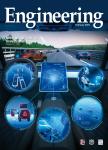The Fibrillar Matrix:Novel Avenues for Breast Cancer Detection and Treatment
The Fibrillar Matrix:Novel Avenues for Breast Cancer Detection and Treatment作者机构:Weston Park Cancer CentreDepartment of Oncology and MetabolismThe Medical SchoolThe University of SheffieldSheffield S102RXUnited Kingdom Department of EngineeringUniversity of CambridgeCambridge CB21PZUnited Kingdom Madeira Chemistry Research CenterUniversity of MadeiraFunchal 9020105Portugal
出 版 物:《Engineering》 (工程(英文))
年 卷 期:2021年第7卷第10期
页 面:1375-1380页
核心收录:
学科分类:1002[医学-临床医学] 100214[医学-肿瘤学] 10[医学]
基 金:The authors would like to thank the Weston Park Cancer Centre(University of Sheffield,UK)the Fundação para a Ciência e a Tecnologia(FCT),the Portuguese Government(PEst-OE/QUI/UI0674/2013) the Agência Regional para o Desenvolvimento da InvestigaçaõTecnologia e Inovação(ARDITI),M1420-01-0145-FEDER-000005 Centro de Química da Madeira(CQM)(Madeira 14-20)
主 题:Breast cancer Tissue stiffness Cancer metastasis Cell migration Bioengineered scaffold Viscosity
摘 要:Breast cancer is marked by large increases in the protein fibers around tumor *** fibers increase the mechanical stiffness of the tissue,which has long been used for tumor diagnosis by manual *** research in bioengineering has led to the development of novel biomaterials that model the mechanical and architectural properties of the tumor microenvironment and can be used to understand how these cues regulate the growth and spread of breast ***,we provide an overview of how the mechanical properties of breast tumor tissues differ from those of normal breast tissue and noncancerous *** also describe how biomaterial models make it possible to understand how the stiffness and viscosity of the extracellular environment regulate cell migration and breast cancer *** highlight the need for biomaterial models that allow independent analysis of the individual and different mechanical properties of the tumor microenvironment and that use cells derived from different regions within *** models will guide the development of novel mechano-based therapies against breast cancer metastasis.



